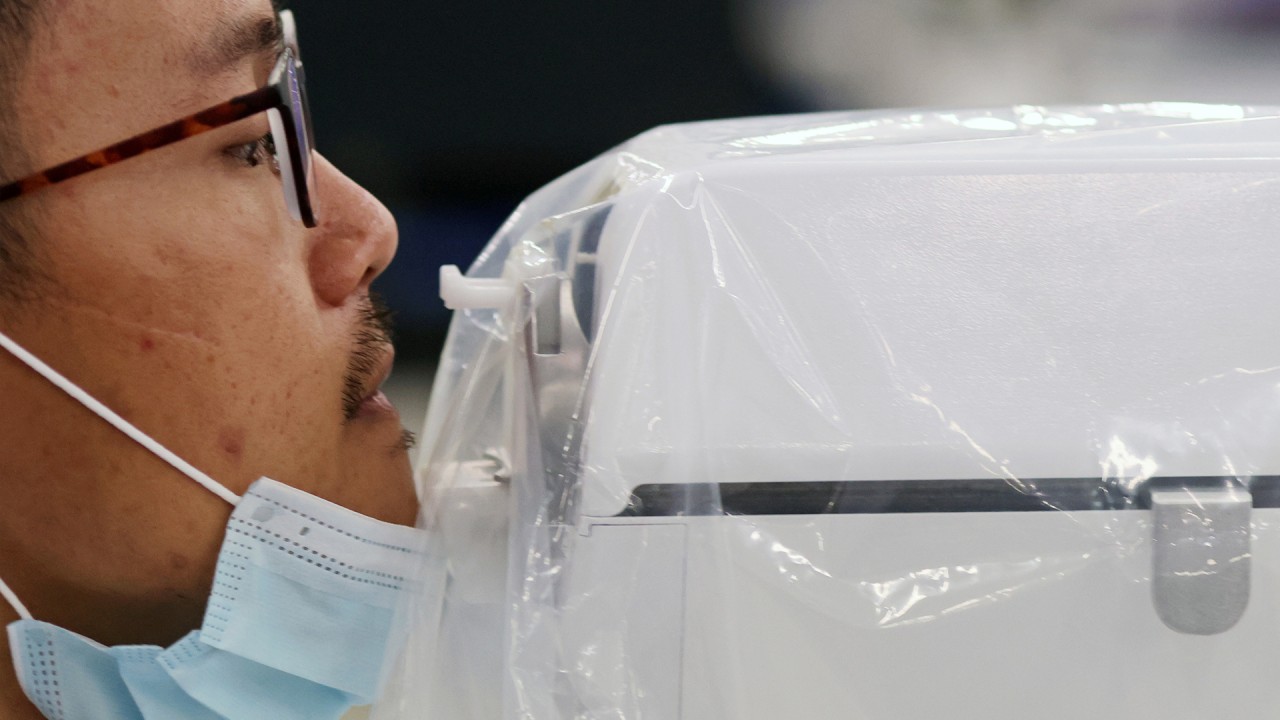
Singapore prepares road map for recovery as Heng warns virus will weigh on budget ‘for years’
- Five-person limit for gatherings and overseas travel restrictions are among the measures that could soon be loosened
- Finance Minister Heng Swee Keat pledges one-off additional financial support for parents to have children
Heng, in a parliament speech, said a road map would be revealed in the coming weeks with Health Minister Gan Kim Yong saying the government could consider lifting the five-person limit for gatherings and allowing more overseas travel.
“We are particularly concerned about dining as we need to remove our masks so as to eat and drink but we tend to also talk at the same time. The risk is considerably higher than activities in which we can keep our masks on and maintain a safe distance,” he said.
But neither was it sustainable to maintain tight restrictions for a prolonged period of time, he said.
“If all of us continue to work together and keep our guard up even as more activities resume, we will be able to keep the pandemic under control and progress towards further opening up our economy and society steadily.”
Coronavirus won’t derail Singapore’s push for equal society: Tharman
Singapore currently has almost 58,000 infections, but more than 99 per cent of its cases have recovered. On Monday, the city state recorded just seven new cases.
Heng said the road map, to be released by a multi-ministry task force managing Singapore’s virus response, would “include the expected timeline for moving to phase three, changes to current regulations on the size of group gatherings, and participation at mass events.”

The Transport Ministry would announce plans to revive Singapore’s air hub and restore connectivity on Tuesday, he said.
Heng, who is also the finance minister, said the focus continued to be on keeping the economy from spiralling downwards and saving as many jobs as possible, while ensuring sufficient numbers of workers could upskill to take on new roles as economic restructuring reshaped industries.
For example, Singapore had identified the green economy as a growth industry and would invest in new solutions such as the capture, use and storage of hydrogen and carbon. “In time, we hope that these promising technologies can become commercially viable decarbonisation pathways in future,” said Heng. “We will establish ourselves as a carbon services hub in Asia.”
With such generous aid and a long recovery dependent on how soon a vaccine for Covid-19 was found and how other countries controlled the pandemic, Singapore’s fiscal position would probably be affected for years to come, Heng said.

01:48
Singapore’s Covid-19 swab test robot helps reduce infection risk for health care workers
“We expect our revenue position to be weak for a number of years, as the effects of Covid-19 on the global economy linger, and our economy slows,” said Heng.
“We will have to find ways to fund these sustainably – higher taxes, and more effective spending.”
In his hour-long speech, Heng said operating revenue for this financial year would likely be 16 per cent lower than the government had initially estimated in February when the Budget was announced.
Singapore to ease coronavirus restrictions, allowing events with 250 people
Already, the five stimulus packages injected into Singapore’s ailing economy come to the tune of almost S$100 billion (US$73 billion), of which S$52 billion were drawn from the country’s vast reserves which are kept secret but are estimated at S$1 trillion.
The stimulus package includes a job support scheme – footing up to 75 per cent of employees wages – that Heng said will cushion the rise in the resident unemployment rate by about 1.7 percentage points this year. This translates to saving 155,000 jobs over these two years, half directly due to the jobs support scheme. Singapore’s residential workforce stands at 2.33 million.
Businesses and individuals were also from April allowed to defer payments of loans and mortgages. A total of 36,000 individuals had deferred their mortgage payments totalling S$29 billion. The measures were slated to finish at the end of the year but Heng announced that some of these schemes would be extended. For example, property owners can apply to repay mortgages at a reduced rate of 60 per cent of their monthly instalment for up to nine months.

Singapore’s three local lenders – DBS, OCBC and UOB – are also bracing for a wave of soured loans and allocated S$4 billion in provisions for both general and problem loans in the first half of the year.
Joseph Wong, head of consumer credit risk management at OCBC Bank, said the changes to the relief programmes were meant to “help ease customers back into some form of normalcy”. “We encourage customers who had taken on moratoriums but are now able to restart the repayments to do so as soon as possible. This will help relieve them of future financial strain,” he said.
Heng said the government’s guiding principle was prudence and not austerity and the measures would avoid “sharp drops in support, while facilitating restructuring where needed”.
Singapore’s IVF fertility drive: symbolic but ultimately impotent?
“We will continue to invest decisively in our national priorities, with a deep commitment to leave behind a better future for our children,” said Heng.
The finance minister also pledged one-off additional financial support for parents to have children, saying he had received feedback that the pandemic had caused some people to postpone their parenthood plans.
Its Southeast Asian neighbour the Philippines however, is facing a likely surge of unintended pregnancies as a result of Covid-19 measures. The United Nations Population Fund last month said these could increase by almost half to 2.6 million if movement restrictions remained until the end of the year.


